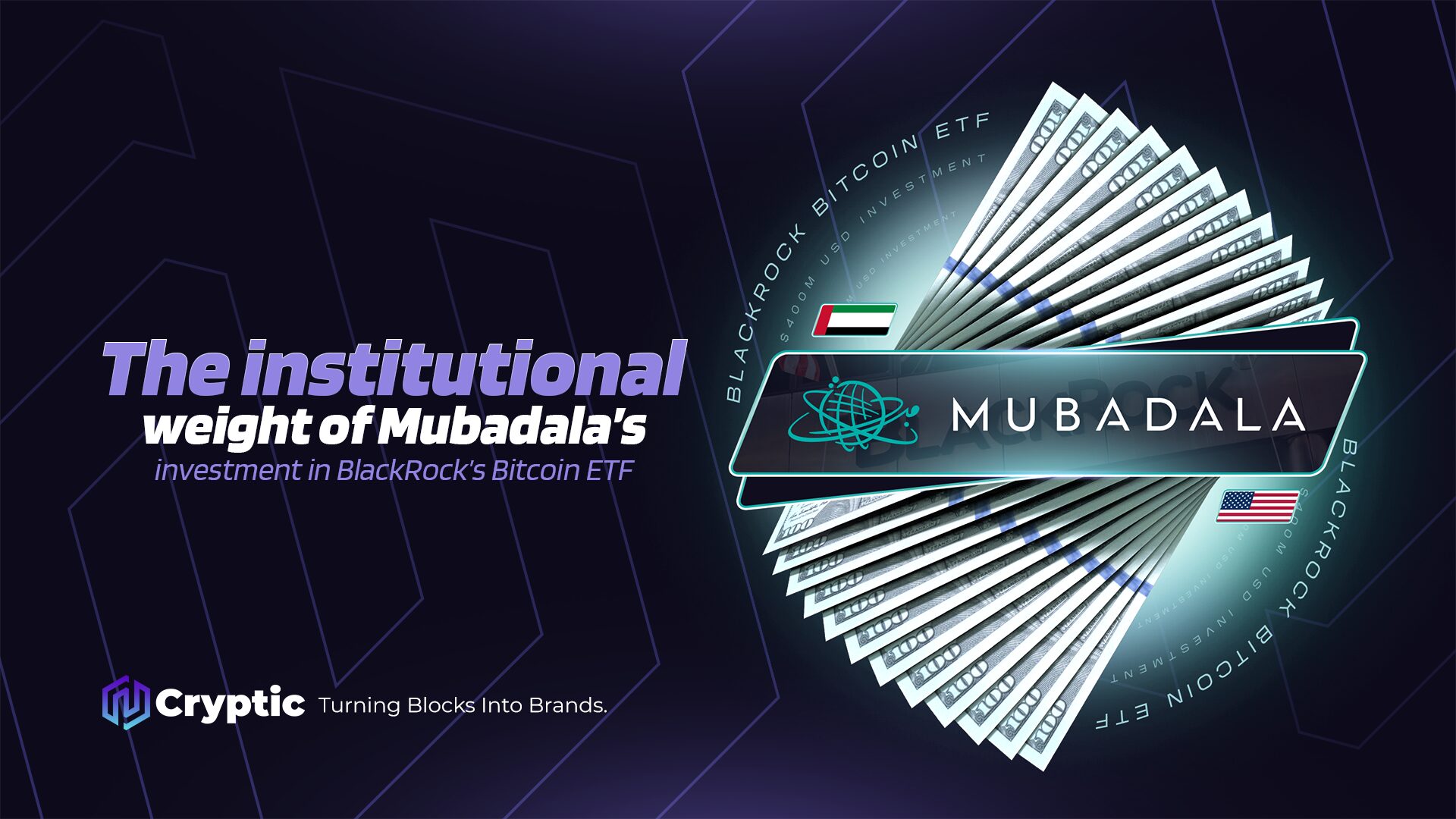
This move strengthens the broader trend of Bitcoin’s institutionalization, a narrative that has gained traction especially after the approval of spot ETFs in the United States. By opting for a traditional exchange-traded vehicle, Mubadala indicates that digital assets can be integrated into sophisticated portfolios without relying on unregulated platforms. This directly supports the normalization of Bitcoin as a viable asset class not only for individual investors but also for funds with conservative and long-term mandates.
The symbolic impact is also significant. By taking such a prominent position in a Bitcoin-related product, Mubadala sends a message to other sovereign wealth funds and institutional investors around the world. Digital assets, once viewed with skepticism, are now part of strategic discussions on diversification and capital preservation. This step could lead to a global reassessment of the role of cryptoassets in both public and private wealth management strategies.
Crypto geopolitics and diplomacy: the meetings between the United States and the United Arab Emirates
The meeting between David Sacks, special advisor to the Trump administration on Artificial Intelligence and Cryptocurrencies, and officials from the United Arab Emirates highlights the rising importance of emerging technologies in international diplomacy. By placing cryptoassets and AI at the center of bilateral dialogue, both nations acknowledge that these tools go beyond economic value and represent strategic assets that can shape public policy, digital security, and geopolitical influence. The presence of senior leaders in these conversations shows that digital assets have become part of today’s most pressing diplomatic agendas.
The selection of the UAE as a partner in this context underscores the country’s leadership in adopting disruptive technologies. This initiative reflects not only an interest in aligning with Western powers but also a desire to position the UAE as a global hub for financial innovation. By treating cryptocurrencies as a matter of state, both sides signal that the future of international relations will increasingly be influenced by technological advancements. This will require new forms of cooperation, governance, and strategic thinking on the global stage.
Institutional and regional adoption on the rise: the Middle East’s role in the cryptoasset market
The Middle East, traditionally associated with oil and energy, is showing increasing interest in digital assets like Bitcoin, signaling a strategic effort to diversify its economic base. The Bitcoin MENA conference in Abu Dhabi, featuring the participation of prominent figures such as Eric Trump, highlights the region’s ambition to become a key player in the global crypto ecosystem. Public support for Bitcoin from major political and business representatives lends cultural and economic legitimacy to the asset and ties it to a broader agenda of innovation and regional modernization.
This trend carries deep implications. In seeking a leadership position within an emerging industry, Gulf nations such as the United Arab Emirates are not only adapting to the evolving global financial order but actively shaping it. The institutional adoption of Bitcoin by sovereign funds, alongside public narratives framing it as a store of value and a hedge against uncertainty, signals a symbolic transition. It marks a shift from the dominance of fossil fuels to an era led by technology and financial decentralization.
What does Abu Dhabi’s move signal?
The decision by Abu Dhabi’s sovereign wealth fund to make a substantial investment in BlackRock’s Bitcoin ETF not only reinforces the institutional presence of cryptoassets but also sets a new benchmark for other major global investors. By aligning Bitcoin with the long-term strategy of one of the wealthiest and most influential nations in the Middle East, the asset’s narrative as a store of value and a hedge against economic and geopolitical uncertainty is further validated. This move is likely to encourage the participation of other sovereign funds and financial institutions and accelerate regulatory conversations on a global scale. Ultimately, it contributes to the maturity and legitimacy of the crypto market as a central element of the emerging international financial architecture.



